As digital commerce evolves, the platform you choose in 2025 will shape not just how you sell, but how you scale. That’s why it’s worth exploring how Drupal Commerce vs Salesforce Commerce Cloud (SFCC) stack up across critical factors like scalability, flexibility, and total ownership.
Drupal Commerce, built on the flexible Drupal CMS, is a go-to for businesses that want complete control over their online store — especially when content is central to their customer journey. In contrast, Salesforce Commerce Cloud is a fully managed SaaS platform that thrives in enterprise environments, offering native integration with the Salesforce ecosystem and tools like Einstein AI and Marketing Cloud.
So how do you choose between Salesforce Commerce Cloud vs Drupal Commerce?
In this guide, we’ll explore the strengths, limitations, and use cases of both platforms to help you make an informed, future-proof decision.
What Are Drupal Commerce and Salesforce Commerce Cloud?
What is Drupal Commerce?
Drupal Commerce is an open-source eCommerce framework built on top of the Drupal content management system (CMS). Rather than functioning as a pre-packaged platform, it gives developers the tools to build highly customized online stores that seamlessly integrate with powerful content capabilities.
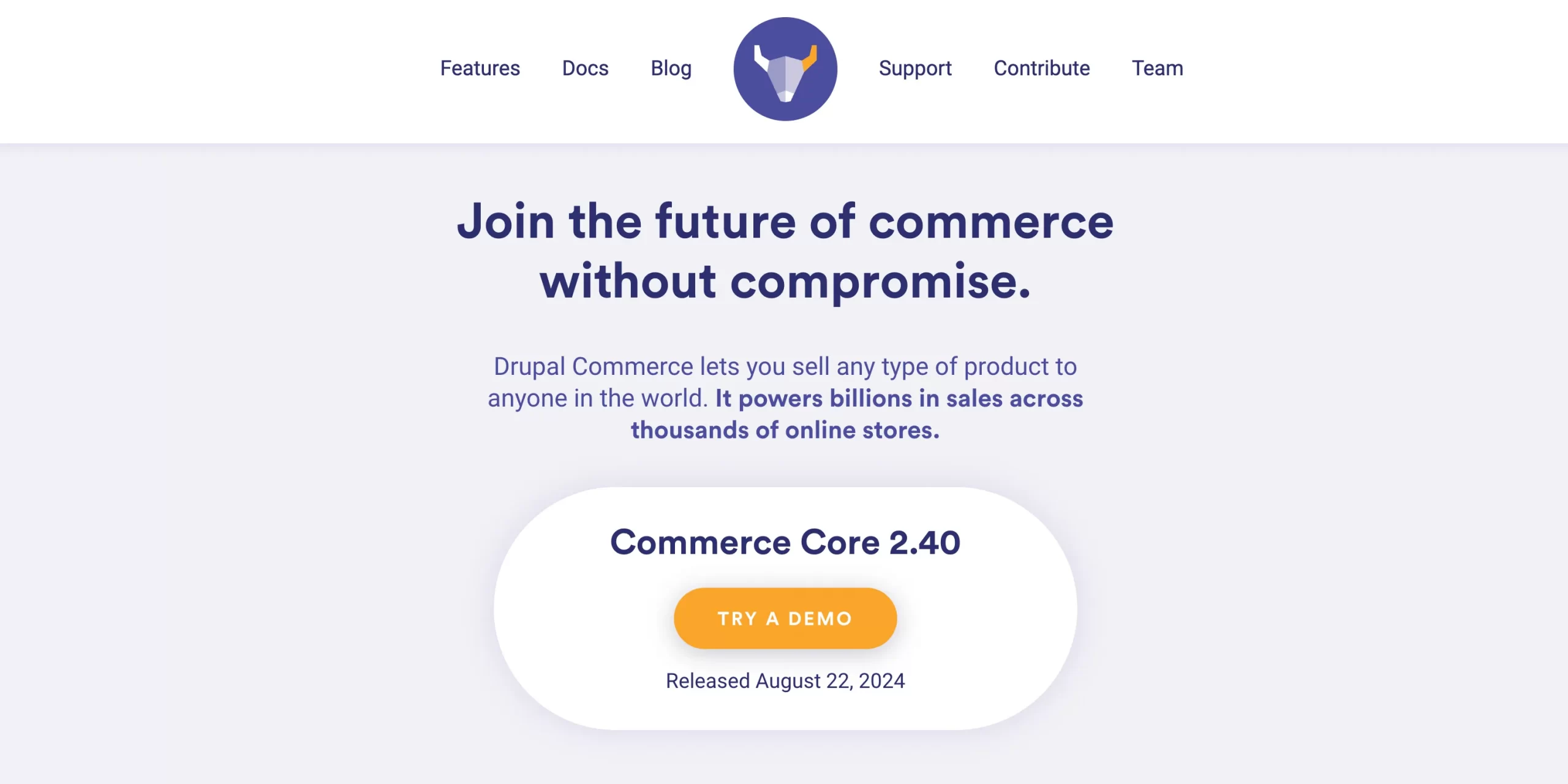
Key characteristics include:
- Modular and flexible
- Content-first
- Custom-built commerce flows
- Self-hosted
It’s often the go-to choice for developers or teams that need full ownership over both the content and commerce experience.
Several well-known and successful online stores use Drupal Commerce to power their eCommerce platforms. These stores span various industries, showcasing the flexibility and scalability of the framework. Some notable examples are Lush (handmade cosmetics), Hermès (luxury goods), Clinique (skincare and cosmetics), and so much more.
What is Salesforce Commerce Cloud?
By comparison, Salesforce Commerce Cloud (SFCC) is a fully managed, cloud-based eCommerce platform offered by Salesforce. It’s built for enterprise-scale retailers and global brands, with a heavy focus on unified commerce across digital and physical channels.
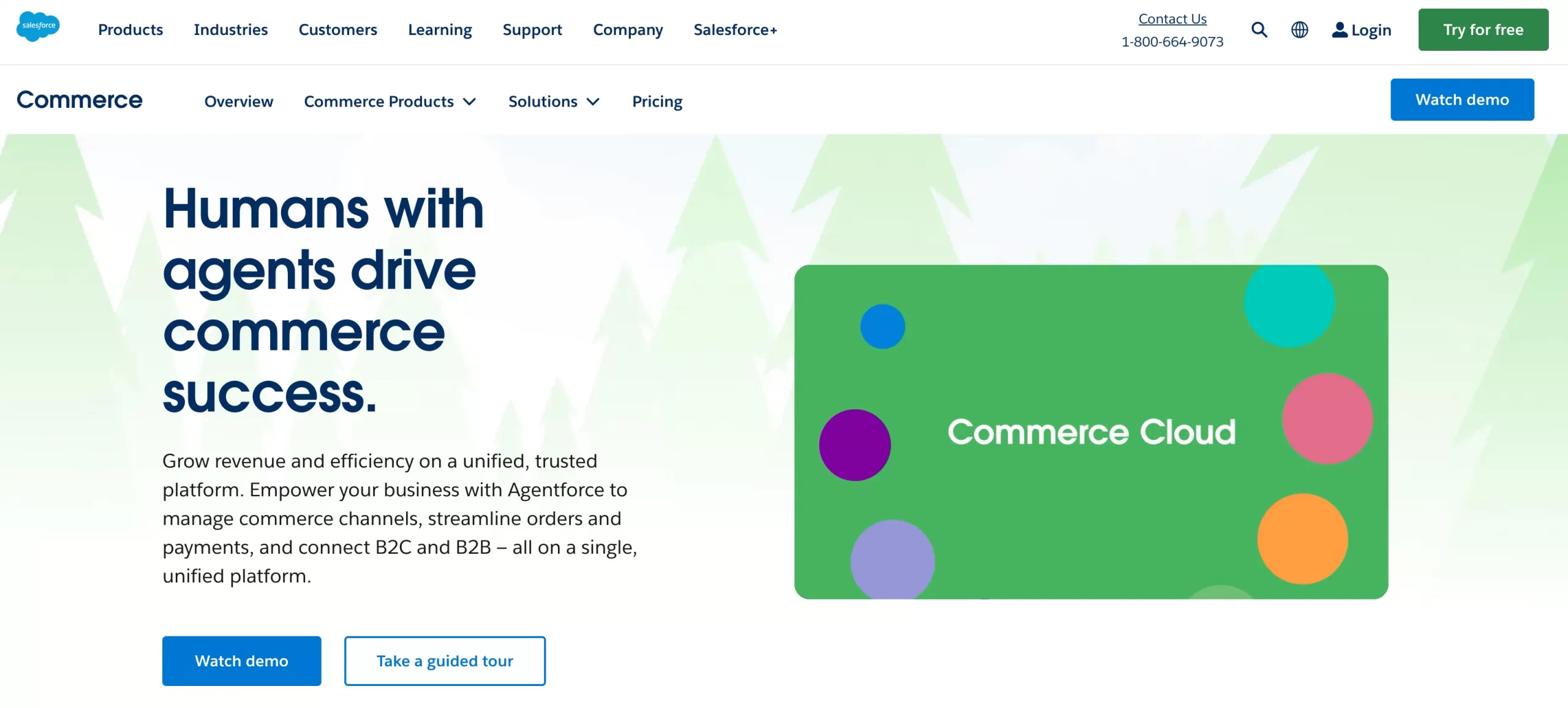
Key strengths include:
- SaaS architecture
- B2B and B2C support
- Enterprise integrations
- Rapid scaling and personalization
SFCC is ideal for businesses that want to focus on growth and customer experience without managing the technical backend. Here are some prominent examples of stores using SFCC: Adidas (sportswear), Versace (luxury fashion), Ralph Lauren (fashion and lifestyle), etc…
Which platform should you choose?
Before diving into feature-by-feature comparisons, it’s worth acknowledging that this isn’t a perfectly even match. Drupal Commerce and Salesforce Commerce Cloud serve different ends of the market — and that’s exactly why this comparison matters.
- Small-to medium-sized businesses (SMBs) should assess whether Drupal Commerce delivers the flexibility they need without paying for the advanced enterprise-level capabilities (and costs) of Salesforce.
- Enterprises, on the other hand, should evaluate whether Salesforce's robust infrastructure, native integrations, and full-service environment justify the premium compared to Drupal’s more hands-on but highly customizable framework.
With that in mind, the following sections will walk through a structured, side-by-side comparison across the most important dimensions in 2025:
- Pricing and total cost of ownership
- Content management capabilities
- Customization and development flexibility
- Hosting and ease of management
- B2B and B2C support
- Ecosystem of apps and integrations
- Performance at scale
- Security and compliance
By the end of this comparison, you’ll have a much clearer picture of which platform best aligns with your business needs, technical capacity, and long-term growth strategy.
How Do Pricing Models Compare?
Drupal Commerce and Salesforce Commerce Cloud (SFCC) follow completely different pricing models — one prioritizes open-source flexibility, the other enterprise-scale services.
Is Drupal Commerce free?
Yes — Drupal Commerce is open-source and free to use. You can download and install it without paying any license fee. However, your total cost will come from:
- Hosting: ~$20–$200/month
- Development/Implementation: ~$2,000–$20,000+ (one-time or ongoing)
- Maintenance: ~$500–$2,000/month (dev hours)
The first-year total will be ~$5,000 – $25,000+.
While this cost may still be significant for some small teams, Drupal Commerce appeals to businesses that value long-term control, open development freedom, and ownership of their eCommerce stack — without being tied to ongoing license fees or platform limitations.
How much does SFCC cost?
In contrast, Salesforce Commerce Cloud is not free and follows an enterprise pricing model. Pricing is based on Gross Merchandise Value (GMV) or a percentage of revenue and may include:
- License: ~1–2% of GMV or minimum ~$150,000/year
- Implementation: ~$100,000 – $500,000+
- Add-ons (Marketing Cloud, Service Cloud, AI): priced separately
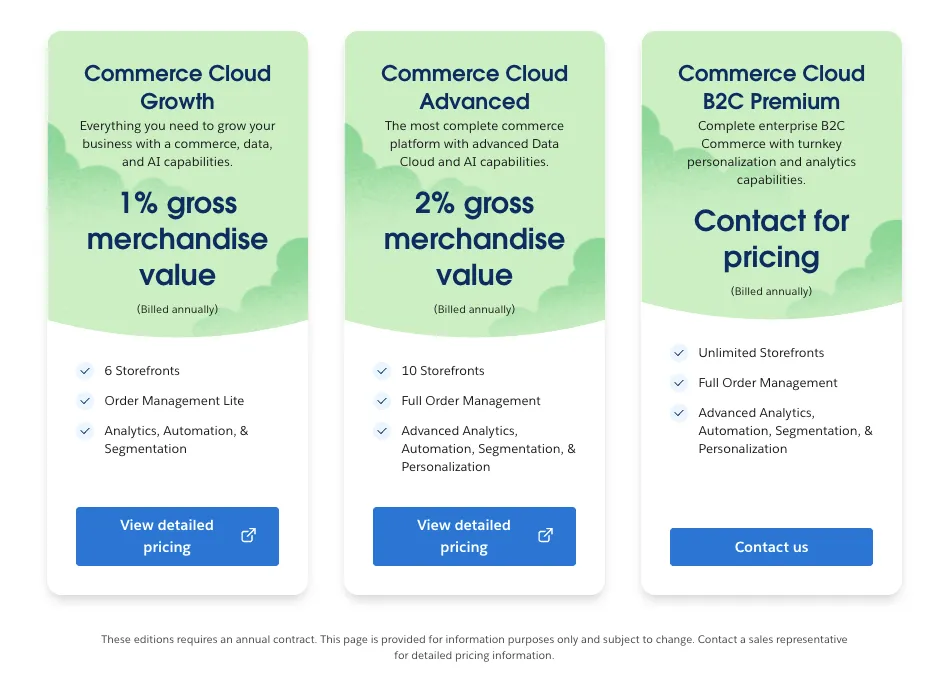
The first-year total will be around ~$200,000 – $600,000+.
As you can see, SFCC makes sense for high-volume brands or enterprises that value bundled scalability, 24/7 support, and enterprise-grade SLAs.
Winner: Drupal Commerce — It offers greater flexibility and lower upfront costs, especially for SMBs and dev-heavy teams.
Which Platform Performs Better at Scale?
As your business grows, so do traffic spikes, data loads, and operational complexity. Scalability becomes critical — and when comparing Drupal Commerce vs Salesforce Commerce Cloud, the difference between self-managed performance and built-in enterprise infrastructure becomes especially clear.
Is Drupal Commerce scalable for large businesses?
Yes, but scaling depends heavily on your hosting and technical setup. Drupal Commerce can support large-scale operations, but you’ll need to:
- Choose performant hosting (e.g., cloud VPS, Acquia, Pantheon)
- Implement advanced caching (Varnish, Redis, CDN)
- Monitor performance manually and scale infrastructure as needed
- Optimize database and backend configurations
In the right hands, it’s powerful — but success at scale depends on technical execution and DevOps maturity.
How does SFCC handle performance?
SFCC is exceptional and built for global eCommerce operations. As a SaaS platform, SFCC can handle:
- Auto-scaling infrastructure
- Built-in global CDN (Content Delivery Network)
- High availability and enterprise-grade uptime SLAs
- Real-time load balancing and server redundancy
It’s engineered to perform under high traffic and seasonal spikes, with no server management required from your team.
While both platforms can scale, Salesforce Commerce Cloud is designed to scale without effort, making it the go-to choice for enterprises expecting rapid growth or global reach.
Winner: Salesforce Commerce Cloud — Built-in scalability and global infrastructure make it enterprise-ready by default.
Which Platform Offers Better Content Management Capabilities?
Drupal Commerce vs Salesforce Commerce Cloud reveals a clear divide in content management — one platform was built with content at its core, and the other relies on external tools.
How does Drupal Commerce handle content?
Drupal Commerce is built directly on top of the Drupal CMS, which is widely recognized as one of the most powerful and flexible content management systems available today. This means content — from blogs and landing pages to multimedia and editorial workflows — is a core part of your store, not an afterthought.
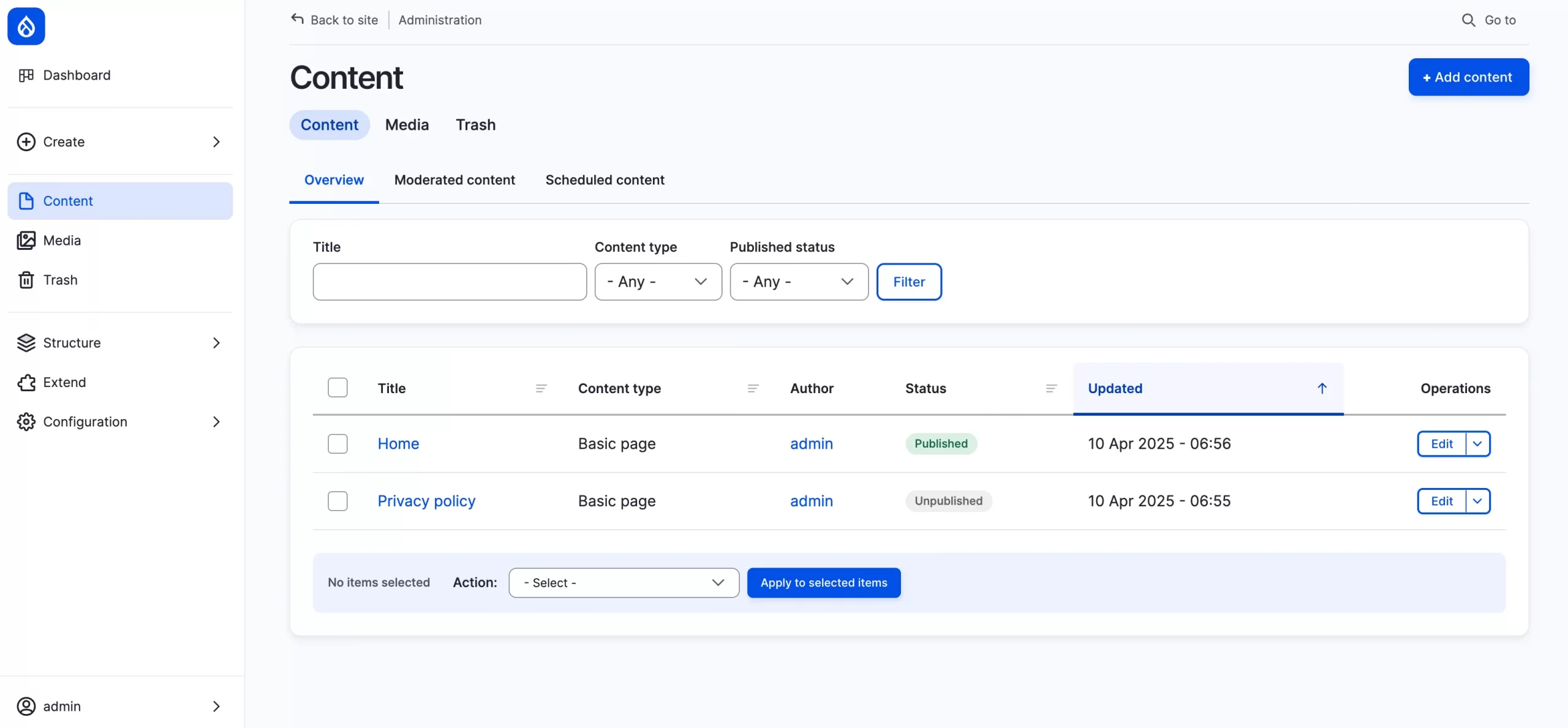
Key advantages of Drupal Commerce CMS:
- Native content types, views, and taxonomy
- Drag-and-drop Layout Builder for visual page creation
- Full control over URL structures, metadata, SEO, and publishing workflows
As you can see, it’s ideal for content-driven brands like media sites, educational institutions, nonprofits, or editorial commerce. With Drupal Commerce, you can build complex, content-first experiences that feel deeply integrated into your eCommerce flow.
Does SFCC include a CMS?
No — unlike Drupal Commerce, Salesforce Commerce Cloud does not have a native CMS.
While SFCC offers robust product and catalog management, it lacks built-in tools for managing rich content like landing pages, blogs, or multimedia. To fill this gap, most users integrate third-party solutions such as:
- Salesforce CMS (limited features, mainly for lightweight content)
- Contentful, Sitecore, or Adobe Experience Manager for enterprise headless setups
This adds complexity and integration cost and limits flexibility for teams that rely heavily on content. If content plays a central role in your customer journey, Drupal Commerce is the clear winner.
Winner: Drupal Commerce — Native CMS integration gives it a major edge for content-rich websites.
Which Platform is More Flexible and Customizable?
Flexibility is key for businesses with unique workflows or storefront needs — and when it comes to customization, Drupal Commerce vs Salesforce Commerce Cloud shows a clear contrast.
Can you fully customize Drupal Commerce?
Yes — Drupal Commerce is highly customizable at every level. Because it’s open-source and built on Drupal, developers have complete access to the platform's backend and frontend. You can modify:
- Checkout flows
- Product types and pricing logic
- Promotional rules, tax handling, shipping methods
- Data models and APIs
- Theming and front-end structure using Twig templates
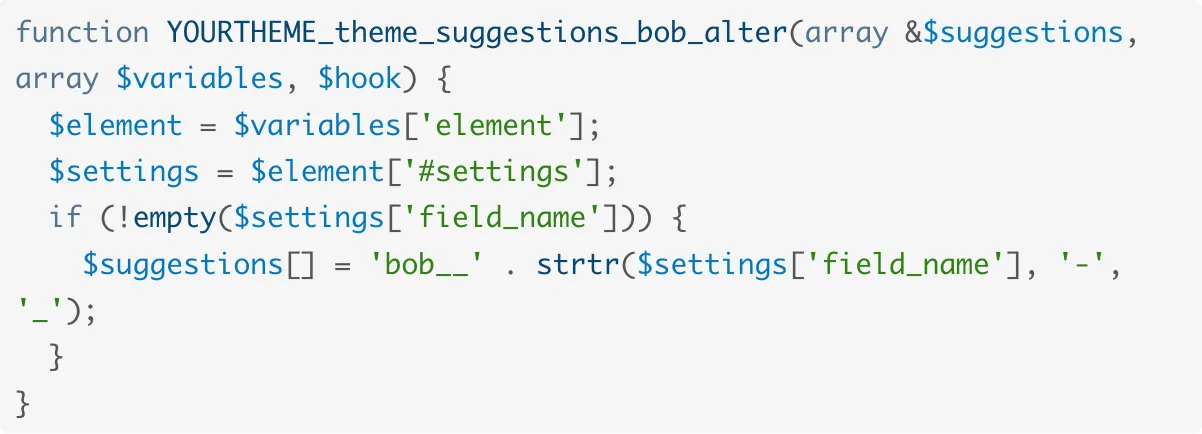
Plus, the modular architecture means you can add or remove functionality via contributed or custom modules — making it a great fit for projects with unique business rules, multi-language requirements, or headless/front-end decoupling.
Can you customize SFCC?
Not to the same extent as Drupal Commerce. You can customize SFCC, but it’s more limited and constrained by the platform’s structure. Salesforce Commerce Cloud allows customization through:
- Business Manager (its admin interface)
- Custom scripts (ISML templates)
- Storefront Reference Architecture (SFRA) — a framework for customizing front-end experiences
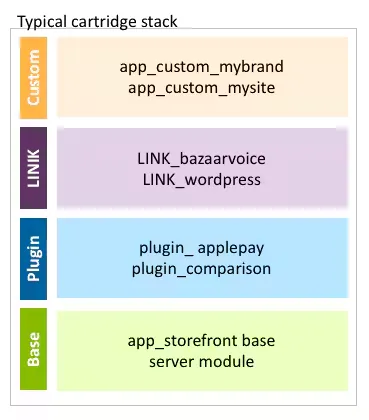
However, since SFCC is a SaaS platform, you don’t have full control over the backend or server environment. Any deep changes require working within Salesforce’s APIs and development guidelines, which can be restrictive and require certified developers or partners.
Winner: It really depends — SFCC is great for predefined workflows, but Drupal Commerce wins when deep customization or full ownership is needed.
Which One Is Easier to Host and Manage?
Beyond features and flexibility, how a platform is hosted and maintained can have a major impact on day-to-day operations. In the case of Drupal Commerce vs Salesforce Commerce Cloud, the difference between self-managed and fully managed infrastructure is significant.
Do you need your own hosting for Drupal Commerce?
Yes, Drupal Commerce is self-hosted. This gives you full control but also means you’re responsible for:
- Selecting and configuring a hosting provider (e.g., VPS, cloud, Acquia, Hostinger)
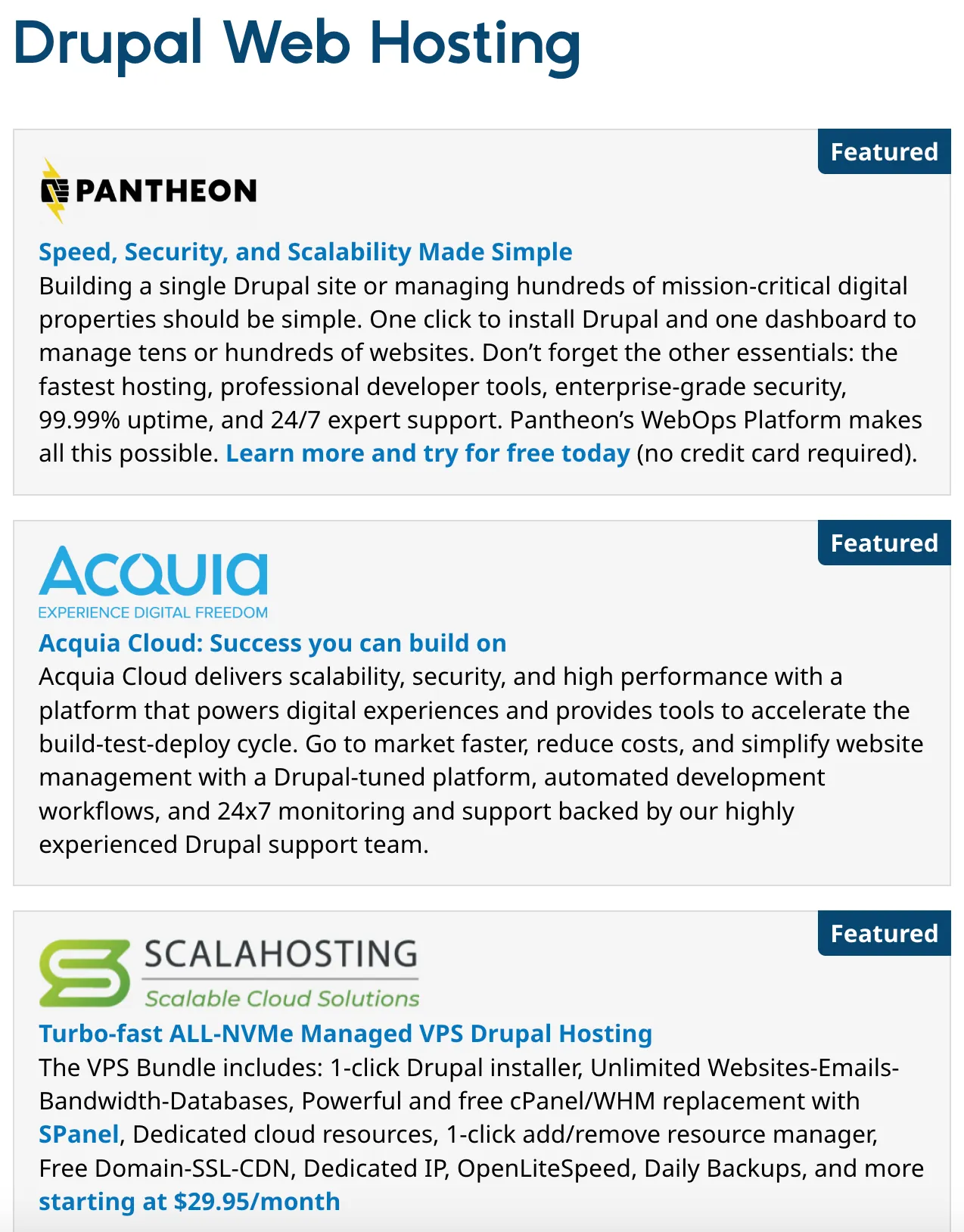
- Managing server security, uptime, backups, and scalability
- Applying core and module updates manually
- Monitoring performance and caching (Varnish, Redis, CDN)
This level of ownership is ideal for dev teams that want fine-tuned control, but it comes with overhead and technical maintenance.
Is SFCC fully managed?
Yes, Salesforce Commerce Cloud is a fully managed SaaS platform. Salesforce takes care of everything behind the scenes, including:
- Hosting infrastructure and deployment
- Performance optimization and scalability (via cloud auto-scaling & global CDN)
- Security patches and system updates
- 24/7 uptime monitoring and enterprise SLAs
You don’t need to worry about DevOps or sysadmin tasks — making it ideal for teams that prefer a turnkey, hands-off environment.
In short, Salesforce Commerce Cloud is easier to manage, especially for non-technical teams or enterprises scaling globally.
Winner: Salesforce Commerce Cloud — Fully managed SaaS makes it easier to deploy and maintain.
Which Platform Supports B2B and B2C Better?
Modern commerce often demands support for B2C and B2B models — sometimes within the same platform. When evaluating Drupal Commerce vs Salesforce Commerce Cloud, it's important to understand how each handles B2B and B2C requirements.
Is Drupal Commerce good for B2B and B2C?
Yes — but Drupal Commerce B2B requires more manual setup.
Drupal Commerce supports both B2C and B2B models thanks to its flexibility, but advanced B2B features are not native and usually require custom development or contributed modules. Typical use cases include:
- Tiered pricing and customer groups
- Quote requests and custom checkout flows
- Purchase orders, invoice-based payment methods
While all of this is possible, it relies heavily on developer implementation — ideal for tailored B2B workflows but not plug-and-play.
Does SFCC support B2B and B2C natively?
Yes — unlike Drupal Commerce, Salesforce offers separate, robust solutions for B2C and B2B. SFCC B2C Commerce is optimized for high-scale, personalized retail experiences, with built-in support for AI-driven merchandising, promotions, and customer journeys.
The platform is structured around realms and instance groups — with separate environments for development, staging, and production — making it highly scalable for multi-brand or multi-region operations.
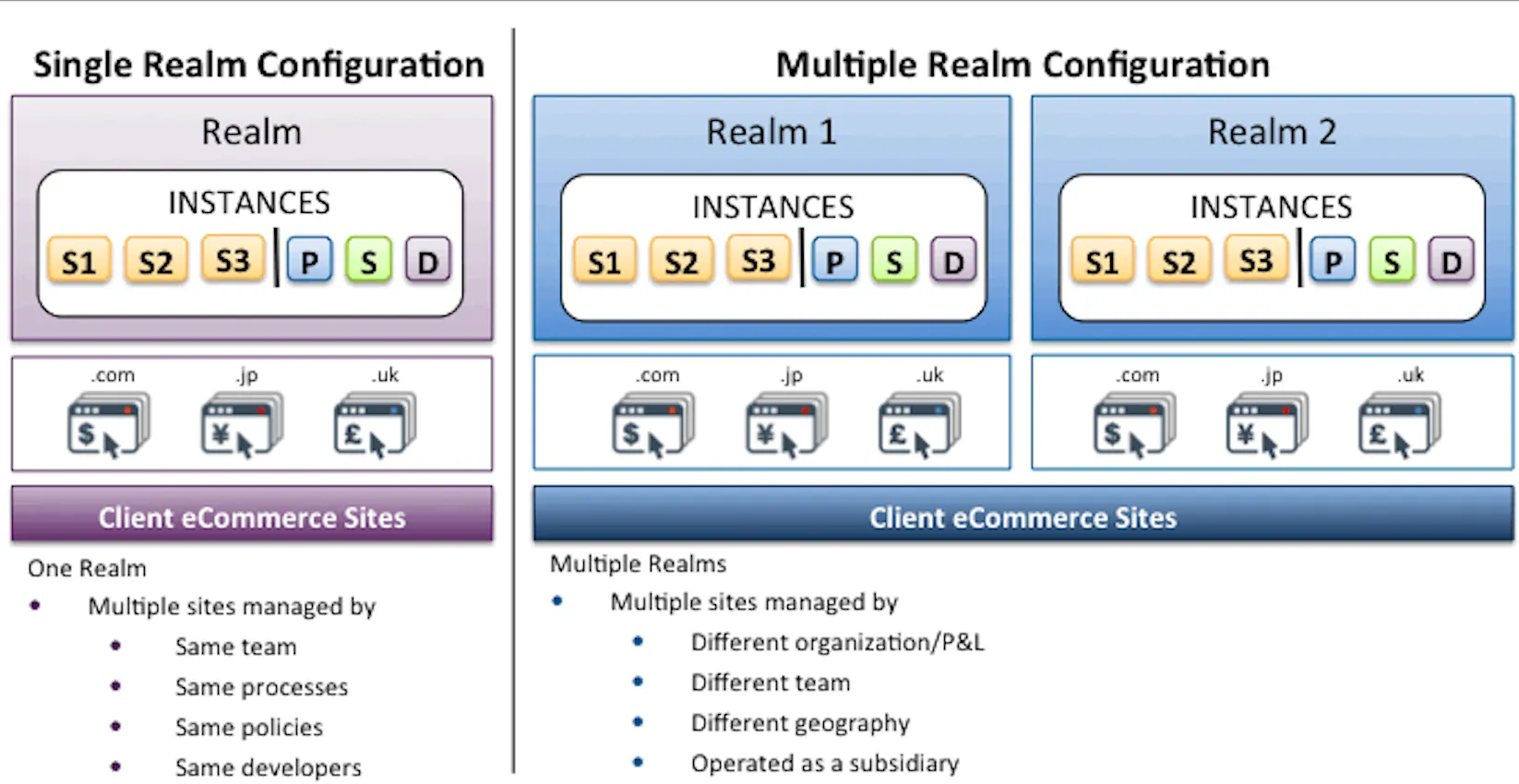
Meanwhile, Salesforce B2B Commerce (especially on Lightning Experience) provides:
- Company account structures
- Buyer roles and permissions
- Contract-based pricing
- Self-service portals and reordering
All this integrates seamlessly with Salesforce CRM and Service Cloud, making it a complete suite for large, multi-channel businesses.
Indeed, if you're running hybrid B2B/B2C operations or plan to scale quickly, SFCC is the stronger solution.
Let's see what an SFCC B2C user said about this solution:
What I love most about Salesforce Commerce for B2C is how it lets me personalize every customer’s experience while keeping all my data in one place. The seamless CRM integration and powerful AI tools make it easy to offer tailored recommendations, track behavior, and adjust quickly to customer needs. It’s super intuitive, so I spend less time managing tech and more time focusing on the customer experience.
taelor m. (G2 review)
Winner: Salesforce Commerce Cloud — Native support for both B2B and B2C makes it a more complete solution out of the box.
How Do the Apps & Plugins Ecosystems Compare?
When comparing Drupal Commerce vs Salesforce Commerce Cloud, their ecosystems take very different approaches to extensibility and third-party tools.
Does Drupal Commerce have a large module and plugin ecosystem?
Yes, Drupal Commerce is powered by the broader Drupal community.
This platform benefits from thousands of contributed modules across the Drupal ecosystem. These extend both content and commerce capabilities:
- Popular plugins for payments (Stripe, PayPal, Authorize.net), shipping (UPS, FedEx), and tax (Avalara, EU VAT)
- Rich integrations via APIs for CRMs, marketing tools, and ERPs
- Optional Commerce Kickstart package for a faster launch
However, most modules are community-developed, so version compatibility and support quality can vary. Configuration often requires developer involvement.
What kind of app ecosystem does SFCC offer?
SFCC is highly curated and enterprise-focused.
Salesforce Commerce Cloud connects to the Salesforce AppExchange, with hundreds of certified solutions for:
- Payment, fraud, and tax automation (Adyen, Stripe, Avalara)
- Personalization and reviews (Algolia, Yotpo, Bazaarvoice)
- Shipping and logistics (ShipperHQ, FedEx, UPS integrations)
- AI/ML tools via Einstein and third-party apps
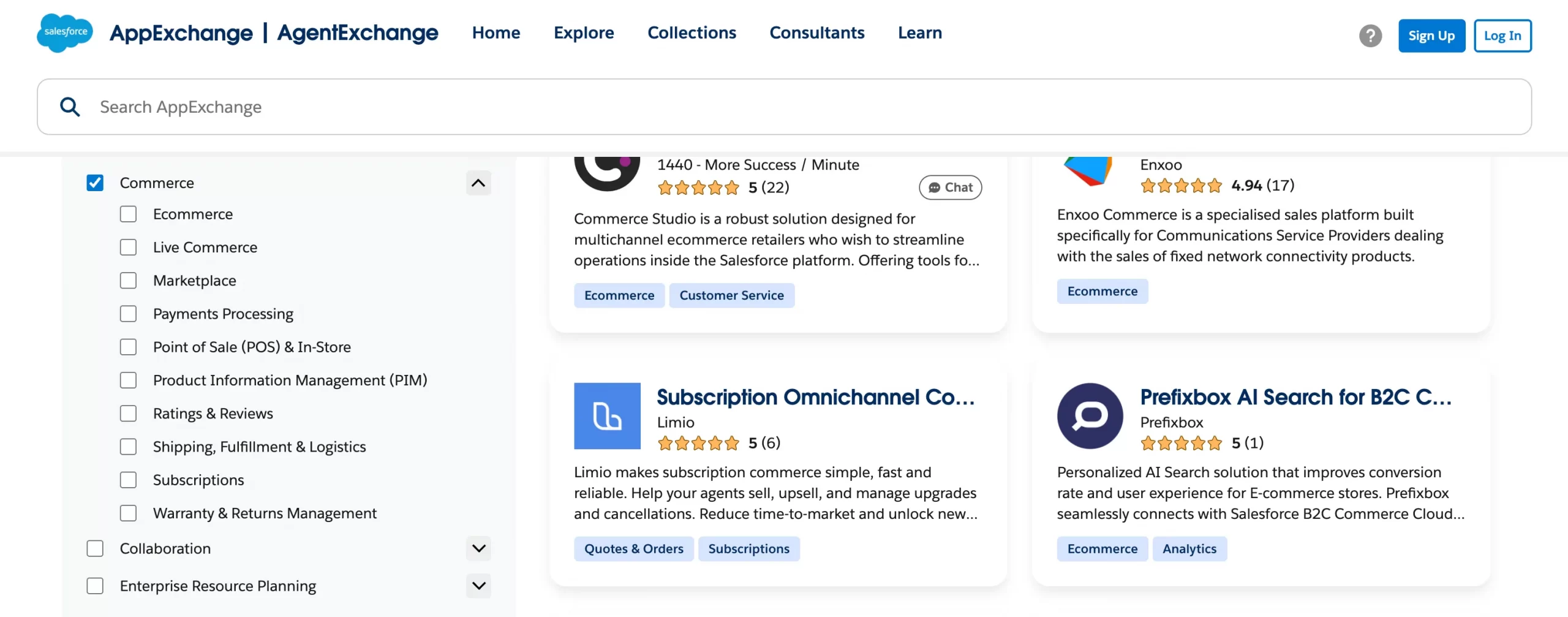
These integrations are enterprise-grade and often supported by Salesforce partners, reducing implementation risks.
In short, Drupal offers open flexibility and developer control, but SFCC wins for plug-and-play reliability, scale, and ecosystem maturity.
Winner: Salesforce Commerce Cloud — A curated enterprise ecosystem with deep integrations and certified partner apps.
Which eCommerce Platform Offers Stronger Security Features?
Security isn't just a feature — it's a foundation. And when it comes to Drupal Commerce vs Salesforce Commerce Cloud, their protection strategies are built very differently.
Is Drupal Commerce secure?
Yes — with proper setup and maintenance.
Drupal Commerce inherits the robust security practices of the Drupal CMS, including:
- Granular user roles and permissions
- Secure coding standards and frequent core/module updates
- Community-vetted modules
- Support for HTTPS, two-factor authentication, and compliance add-ons (GDPR, CCPA)
However, as a self-hosted solution, security ultimately depends on your hosting provider, server configuration, and update discipline. You’ll need to manage patches, backups, and monitoring actively.
What security features does SFCC offer?
Fully managed and compliant out of the box.
Salesforce Commerce Cloud is built with enterprise security as a priority, offering:
- Automatic updates and patching
- Global compliance standards (PCI DSS, ISO 27001, SOC 2, GDPR, CCPA)
- Built-in fraud protection tools
- Encrypted transactions and secure access controls
- DDoS protection and continuous threat monitoring
All security infrastructure is handled by Salesforce, making it a reliable option for businesses that want peace of mind without internal security overhead.
Winner: Salesforce Commerce Cloud — Enterprise-grade security is built into the platform by default.
Bonus: What’s Next for Drupal Commerce and SFCC in the Coming Years?
We’ve covered the key differences between Drupal Commerce and Salesforce Commerce Cloud so far, but if you’re thinking long-term like I am, the real story lies in where these platforms are headed. Here’s what I expect next from each and why it matters for businesses planning beyond today.
Drupal Commerce is expected to grow steadily alongside the Drupal ecosystem, with a focus on:
- Deeper integration with Drupal 10/11 and future CMS upgrades
- Continued development of Commerce 2.x features and possibly a 3.x roadmap
- Rising demand for headless commerce and composable architectures
- Broader adoption of modern front-end frameworks like React, Vue, and Next.js
- Improvements in developer tooling, APIs, and the Commerce Kickstart experience
From my point of view, Drupal Commerce will likely remain a favorite for custom, content-heavy commerce sites, government platforms, and organizations with strong dev teams.
SFCC’s future is deeply tied to the Salesforce ecosystem, with momentum in:
- AI-driven commerce through Einstein AI (personalization, predictive analytics, search)
- Expansion of B2B and B2C Commerce on the Salesforce Lightning platform
- Enhanced capabilities for omnichannel commerce, loyalty programs, and marketing automation
- Greater emphasis on headless APIs and composable commerce via the Salesforce Composable Storefront
- Ecosystem upgrades via integrations with Slack, Data Cloud, and more
SFCC is positioning itself as the go-to for enterprises seeking unified CRM, marketing, and commerce experiences at scale — with an increasing focus on AI, automation, and integration.
Drupal Commerce vs Salesforce Commerce Cloud: FAQs
Is Drupal good for eCommerce?
Yes. Drupal Commerce is a flexible and powerful eCommerce framework built on top of the Drupal CMS. It's ideal for businesses that need a custom, content-driven online store with full control over functionality and design.
What is the difference between Salesforce Sales Cloud and Commerce Cloud?
Sales Cloud is focused on CRM (managing leads, sales pipelines, and customer data), while Commerce Cloud is a dedicated eCommerce platform for selling products online across B2C and B2B channels. Both can work together within the Salesforce ecosystem.
Is Salesforce Commerce Cloud a CMS?
No, SFCC is not a CMS. While it offers product and catalog management, it lacks native content publishing tools. Most users integrate it with third-party or headless CMS platforms for content-rich experiences.
Can I migrate from Drupal to Salesforce or vice versa?
Yes, migrations between Drupal Commerce and Salesforce Commerce Cloud are possible, but they require careful planning. You’ll need to handle:
- Product/catalog data mapping
- Customer records
- Order histories
- URL and SEO redirects
- Platform-specific features (e.g., content types vs. CRM fields)
To simplify the process and avoid data loss or downtime, using a professional eCommerce migration service like LitExtension is highly recommended. We specialize in secure and fully customized migration solutions, offering personalized support tailored to your store’s structure, platform-specific features, and business goals.
Final Thoughts
Choosing between Drupal Commerce vs Salesforce Commerce Cloud ultimately comes down to your business goals, resources, and long-term digital strategy.
If you’re looking for total flexibility, deep content integration, and full control over your tech stack — and you have the technical resources to support it — then Drupal Commerce is a strong, scalable solution. It’s ideal for content-first brands, non-profits, publishers, and businesses that value modular, open-source architecture.
On the other hand, if you’re an enterprise-level organization looking for a fully managed platform that scales effortlessly, integrates natively with CRM and marketing tools, and provides robust support, then Salesforce Commerce Cloud is built for you. It’s a powerhouse for global retail, B2B commerce, and complex omnichannel operations.
We hope you found this article insightful and now have a clear understanding of Drupal Commerce vs Salesforce Commerce Cloud. For more content like this, be sure to visit the LitExtension blog and join our eCommerce community to gain further insights and connect with fellow business owners.

